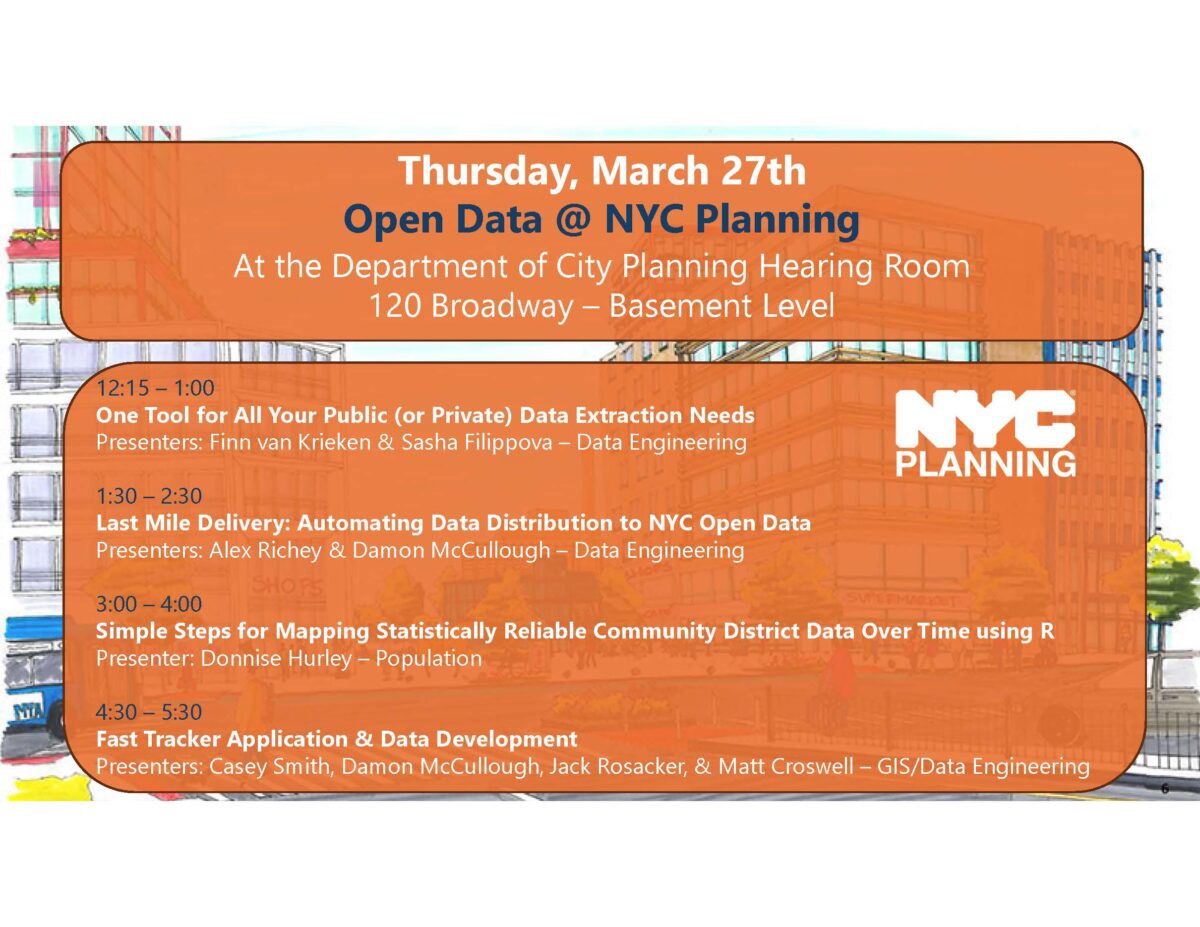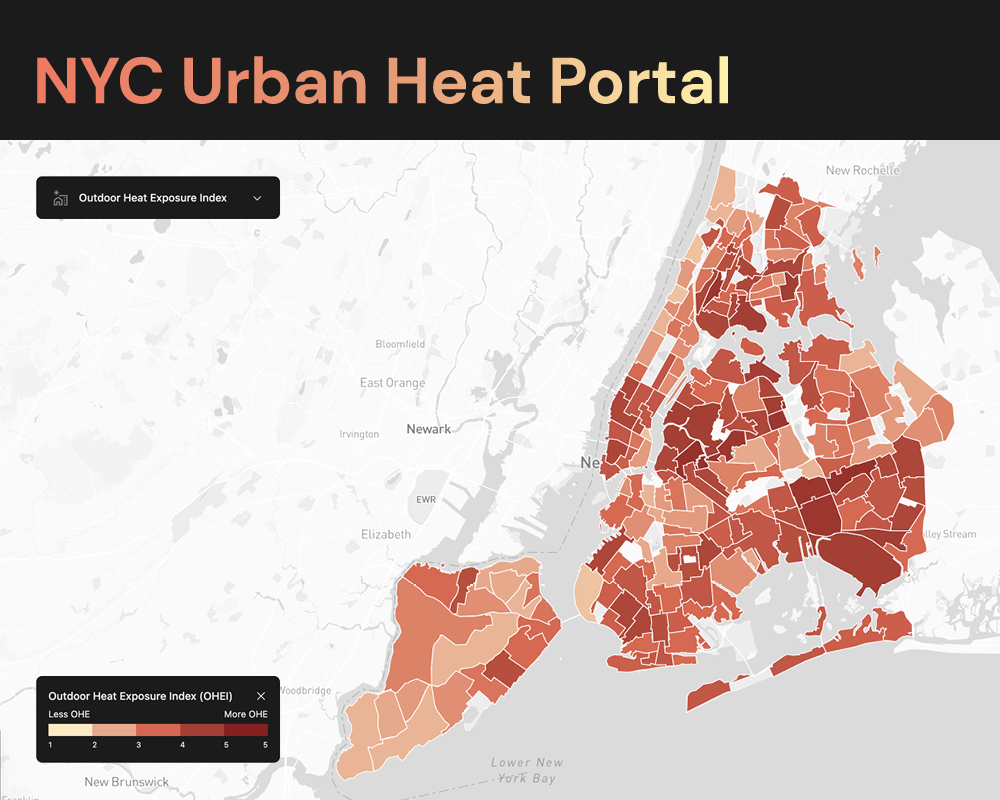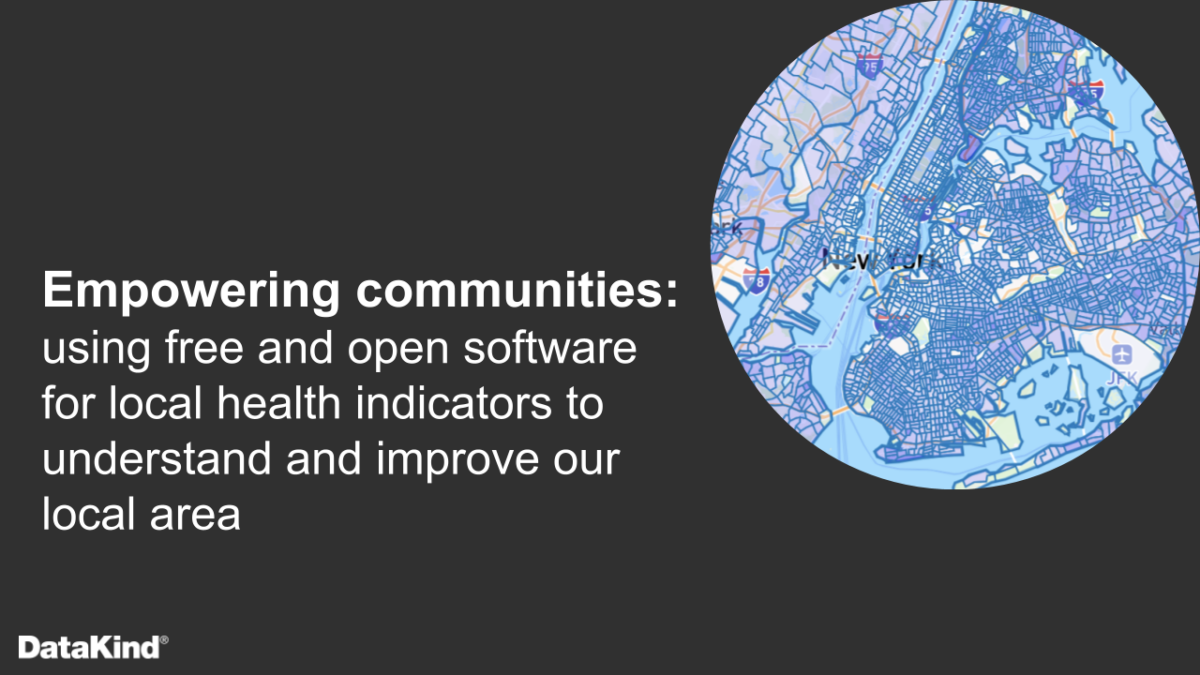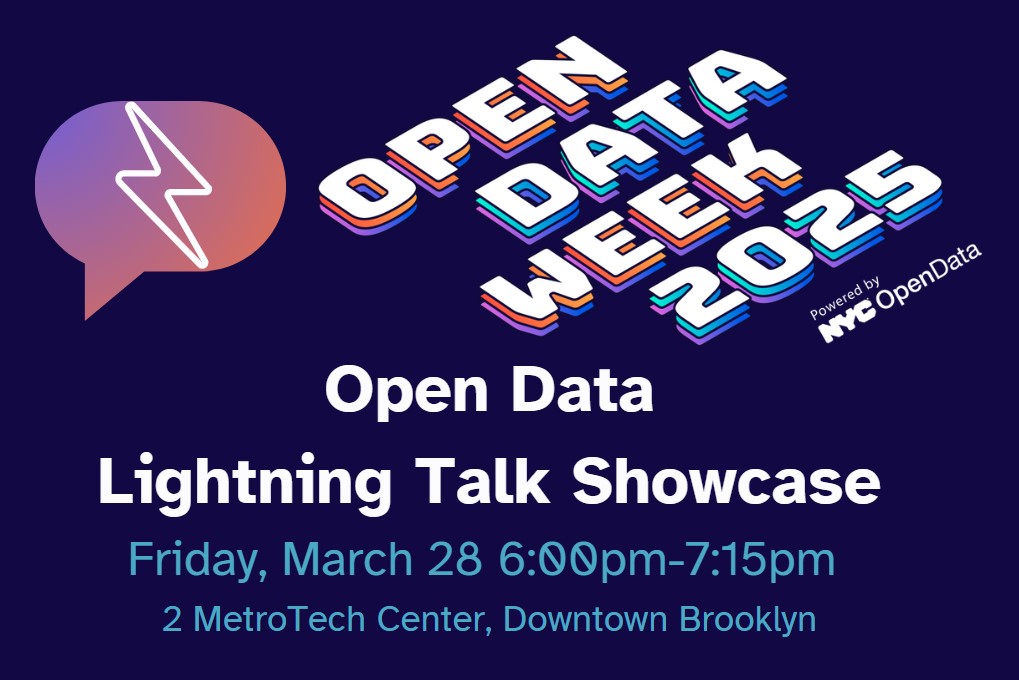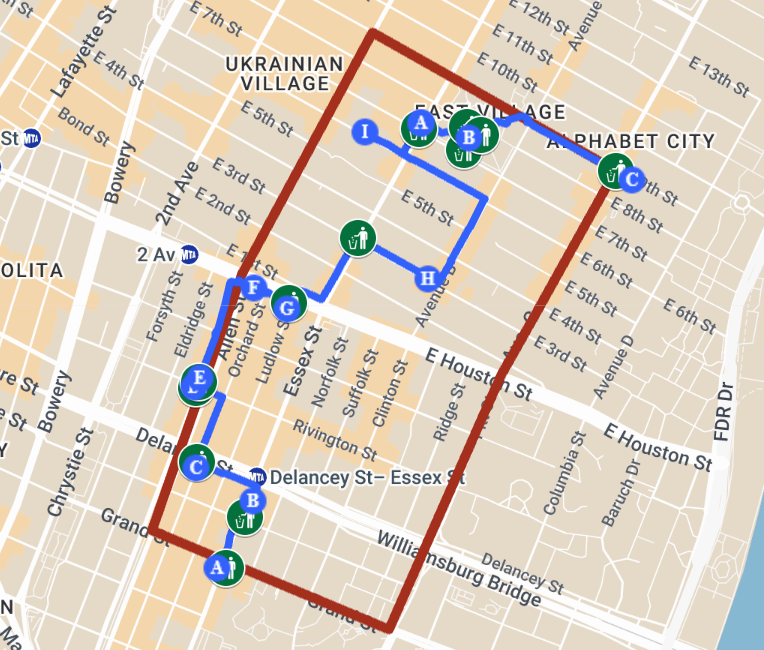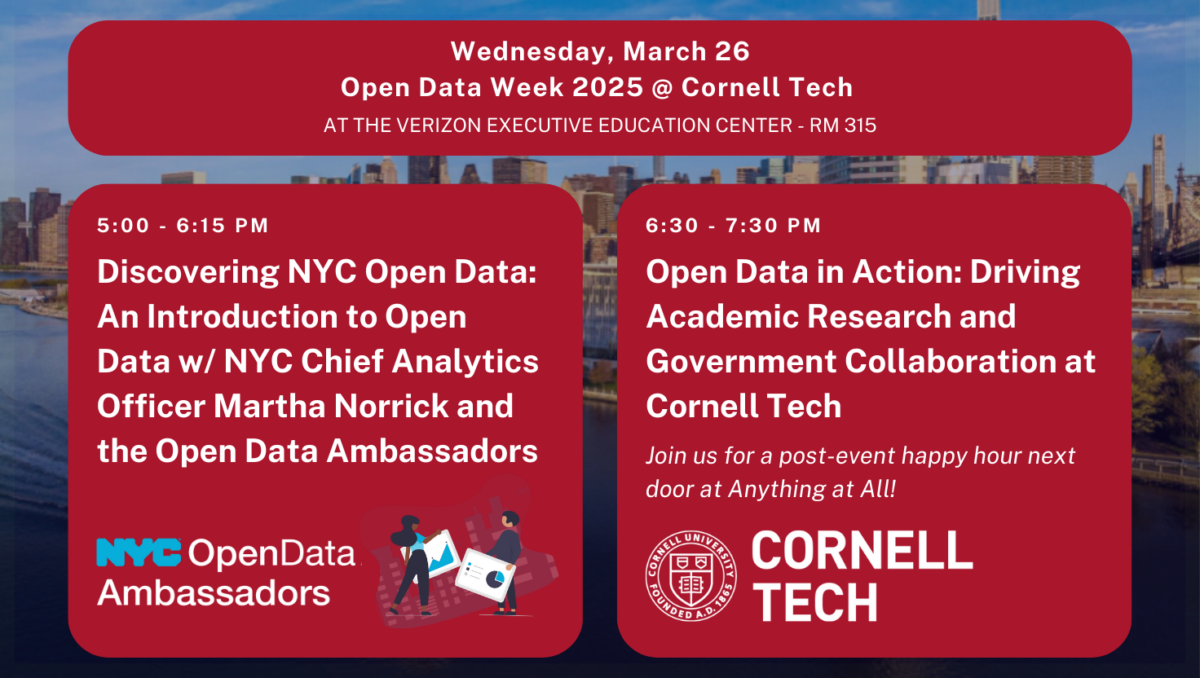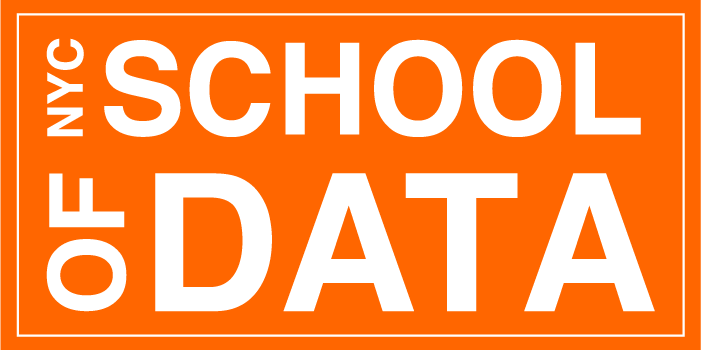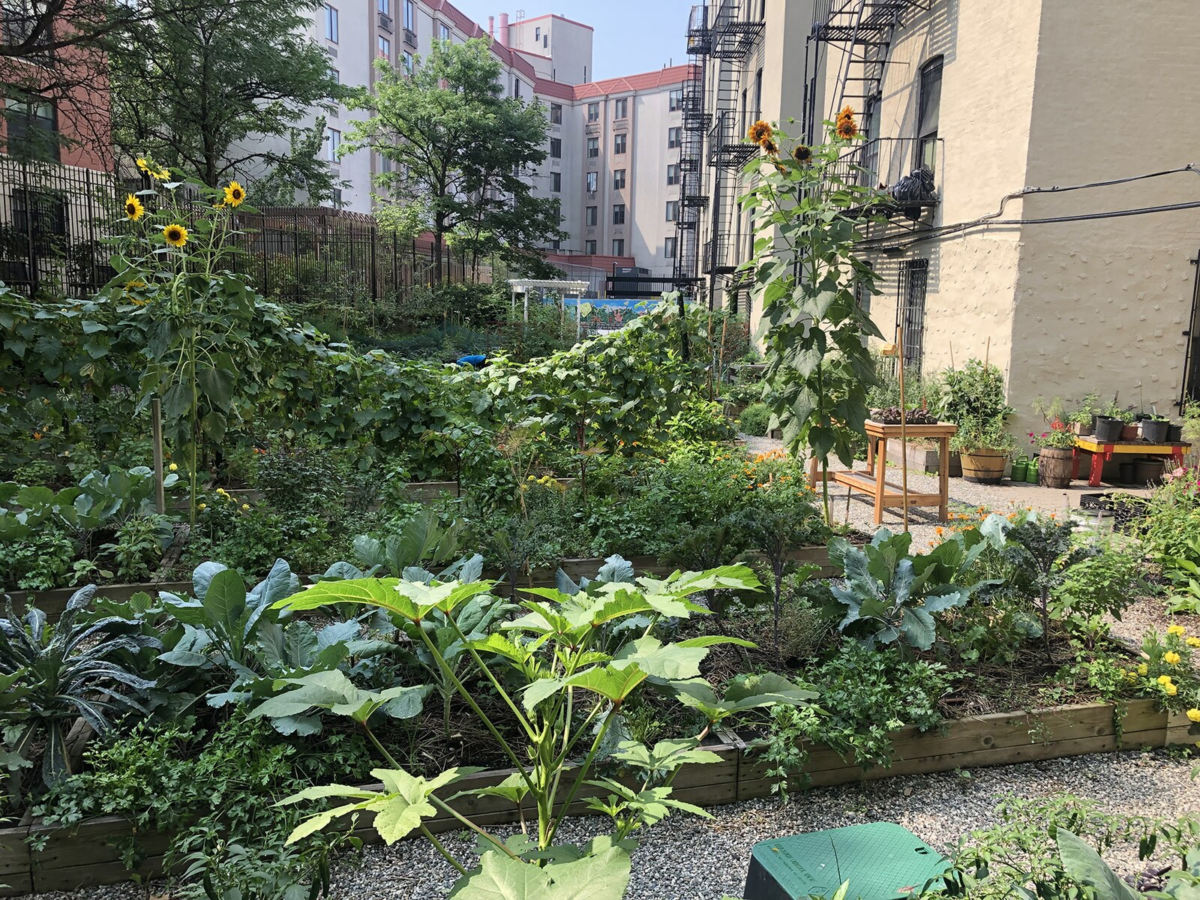Join us for an exciting set of back-to-back presentations featuring Cornell Tech researchers and practitioners as they share their real-world applications of NYC Open Data. This session offers a unique opportunity to explore how open data is being leveraged to address urban challenges, improve decision-making, and drive innovation across a variety of fields. Participants will gain valuable insights from experts who are actively shaping the future of NYC through data-driven solutions.
This event is part of an Open Data Week series hosted by Cornell Tech— learn more below!
Presentations:
– The ABCs of a PiTech Fellow: Artificial Intelligence (AI) & Natural Language Processing (NLP), Block Party & Community Boards
Breanna Green, PhD Candidate, Information Science, Cornell Tech
– Data-driven analyses and optimization of 311 systems: Applications to NYC Parks
Zhi Liu, PhD Candidate, Operations Research and Information Engineering, Cornell Tech
– Data analysis and modeling of public building construction in New York City
Sara Venkatraman, Senior Research Associate in Statistics, Weill Cornell Medical College
– Democratizing Policy Counterfactuals with AI: A deep dive into Local Law 97, NYC’s groundbreaking law to cut carbon emissions in its largest buildings
Vianney Brandicourt, Urban Tech Fellow, Cornell Tech
– Analyzing the effects of congestion pricing using Open Data
Nikhil Garg, Assistant Professor, Cornell Tech
– Predictive Maintenance for NYC Subway Lines
Atmika Pai, MS Candidate, Information Systems, Jacobs Technion-Cornell
Bhoomika Mehta, MS Candidate, Information Systems, Jacobs Technion-Cornell
– SenTree: Leveraging NYC Open Data to predict urban tree health
Rishabh Surendran, MBA Candidate, Johnson Cornell Tech
Shubham Arya, MBA Candidate, Johnson Cornell Tech
– –
This event is part of an Open Data Week series hosted by Cornell Tech on Wednesday, March 26 from 5-8pm. We’d love for you to join us for both sessions— though it is not required! We’ll kick off at 5:00 pm with a hands-on Discovering NYC Open Data class from the Open Data Ambassadors, where you’ll learn the fundamentals of NYC Open Data. Following that, at 6:30 pm, Cornell Tech researchers and experts will discuss their real-world applications of open data, during Open Data in Action: Driving Academic Research and Government Collaboration at Cornell Tech. Join us for a post-event happy hour next door at Anything at All!
There are many easy ways to get to Cornell Tech, located on Roosevelt Island. For maps and directions see here.

